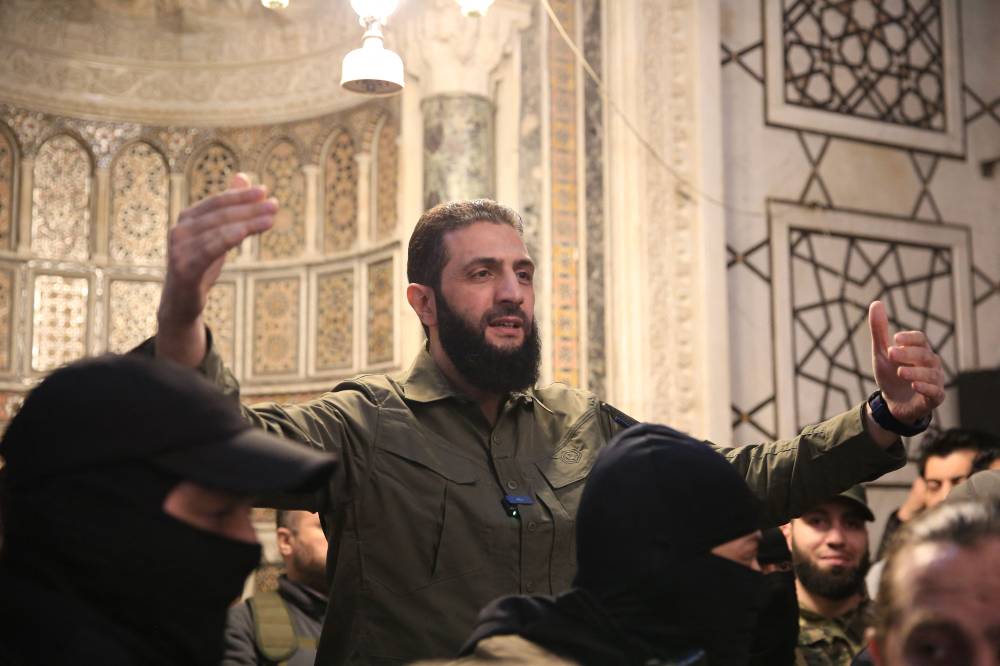Syrian rebel leader puts his stamp on the state

DAMASCUS/BEIRUT — Rebel leader Ahmad al-Sharaa’s Islamist group is stamping its authority on Syria’s state with the same lightning speed that it seized the country, deploying police, installing an interim government and meeting foreign envoys – raising concerns over how inclusive Damascus’ new rulers intend to be.
Since Sharaa’s Hayat Tahrir al-Sham (HTS) group swept Bashar al-Assad from power on Sunday at the head of a rebel alliance, its bureaucrats — who until last week were running an Islamist administration in a remote corner of Syria’s northwest — have moved into government headquarters in Damascus.
The appointment of Mohammed al-Bashir, the head of the regional government in HTS’ enclave of Idlib, as Syria’s new interim prime minister on Monday underlined the group’s status as the most powerful of the armed groups that battled for more than 13 years to end Assad’s iron-fisted rule.
Although it was part of al Qaeda before breaking ties in 2016, HTS had reassured tribal leaders, local officials, and ordinary Syrians during its march to Damascus that it would protect minority faiths, winning broad approval. The message helped smooth the rebels advance and Sharaa — better known as Abu Mohammed al-Golani — has repeated it since Assad’s ouster.
‘All Muslims’
At the office of the Damascus governor, its walls exquisitely decorated with marquetry and stained glass, the man brought from Idlib to run affairs dismissed concerns that Syria was being moved towards an Islamic form of government.
“There is no such thing as Islamic governance. After all, we are Muslims and it’s civil institutions or ministries,” said Mohammed Ghazal, a bespectacled 36-year-old civil engineer with a thick beard who was raised in the United Arab Emirates and spoke in near perfect English.
“We don’t have any problem with any ethnicity and religion,” he said. “The one who made the problem was the (Assad) regime.”
However, the way HTS has gone about shaping the new interim government — by bringing senior administrators from Idlib — has caused concern for some. Four opposition sources and three diplomats told Reuters they were concerned about the inclusiveness of the process so far.
Bashir has said he will only remain in power until March. But HTS — which remains classified as a terrorist group by the United States, regional powerbroker Turkey and other governments — has yet to spell out key details of the transition process, including its thinking on a new constitution.
Reuters, the news and media division of Thomson Reuters, is the world’s largest multimedia news provider, reaching billions of people worldwide every day. Reuters provides business, financial, national and international news to professionals via desktop terminals, the world's media organizations, industry events and directly to consumers.

















